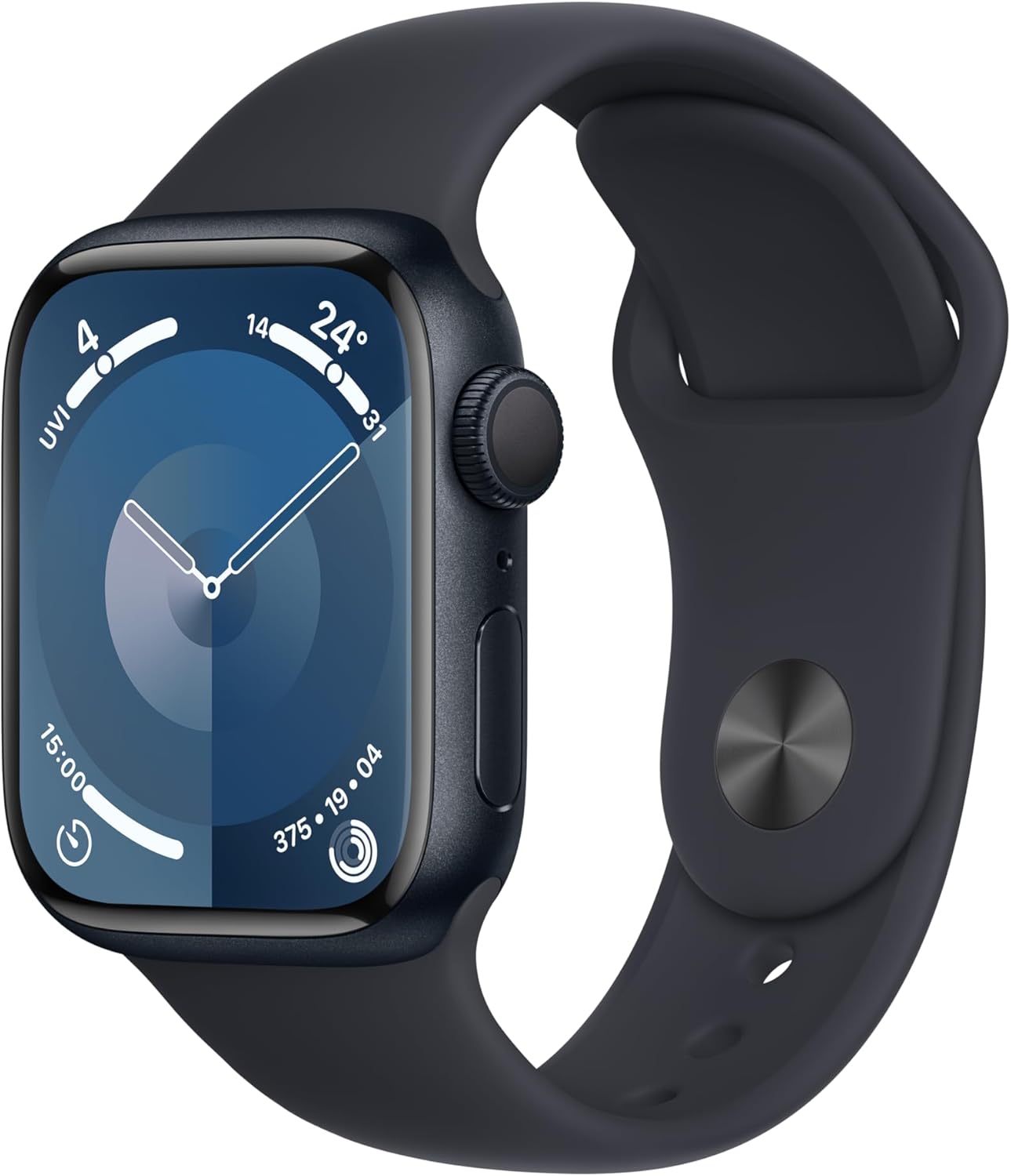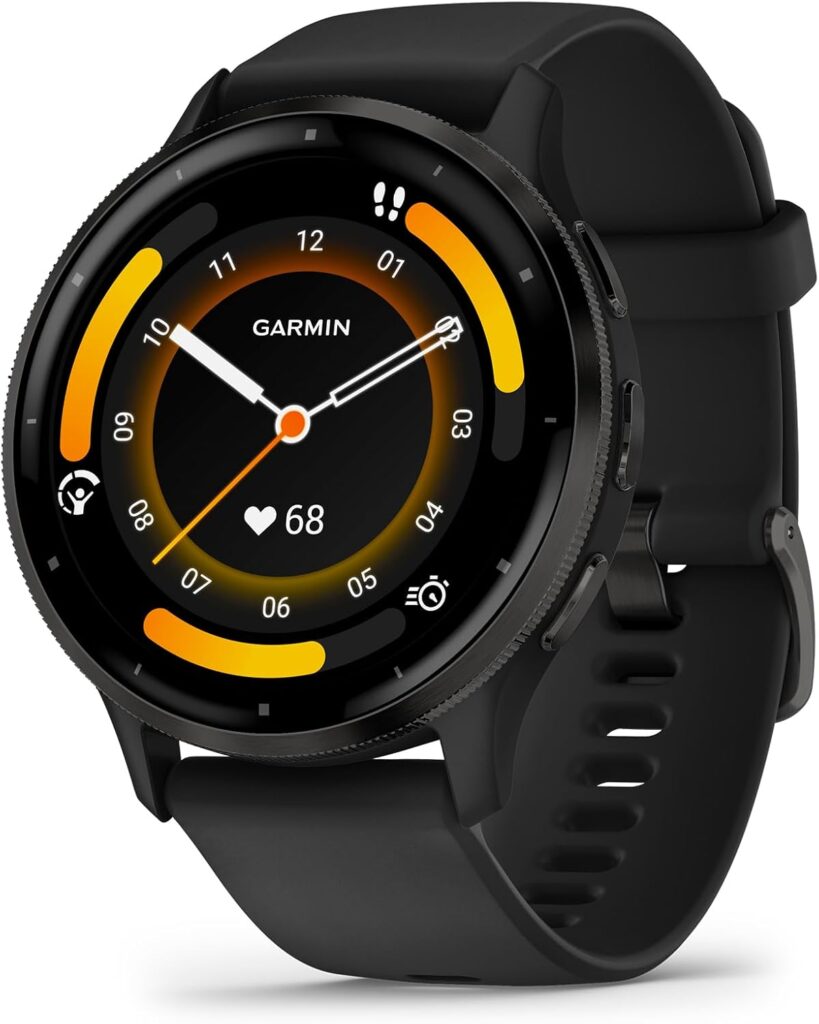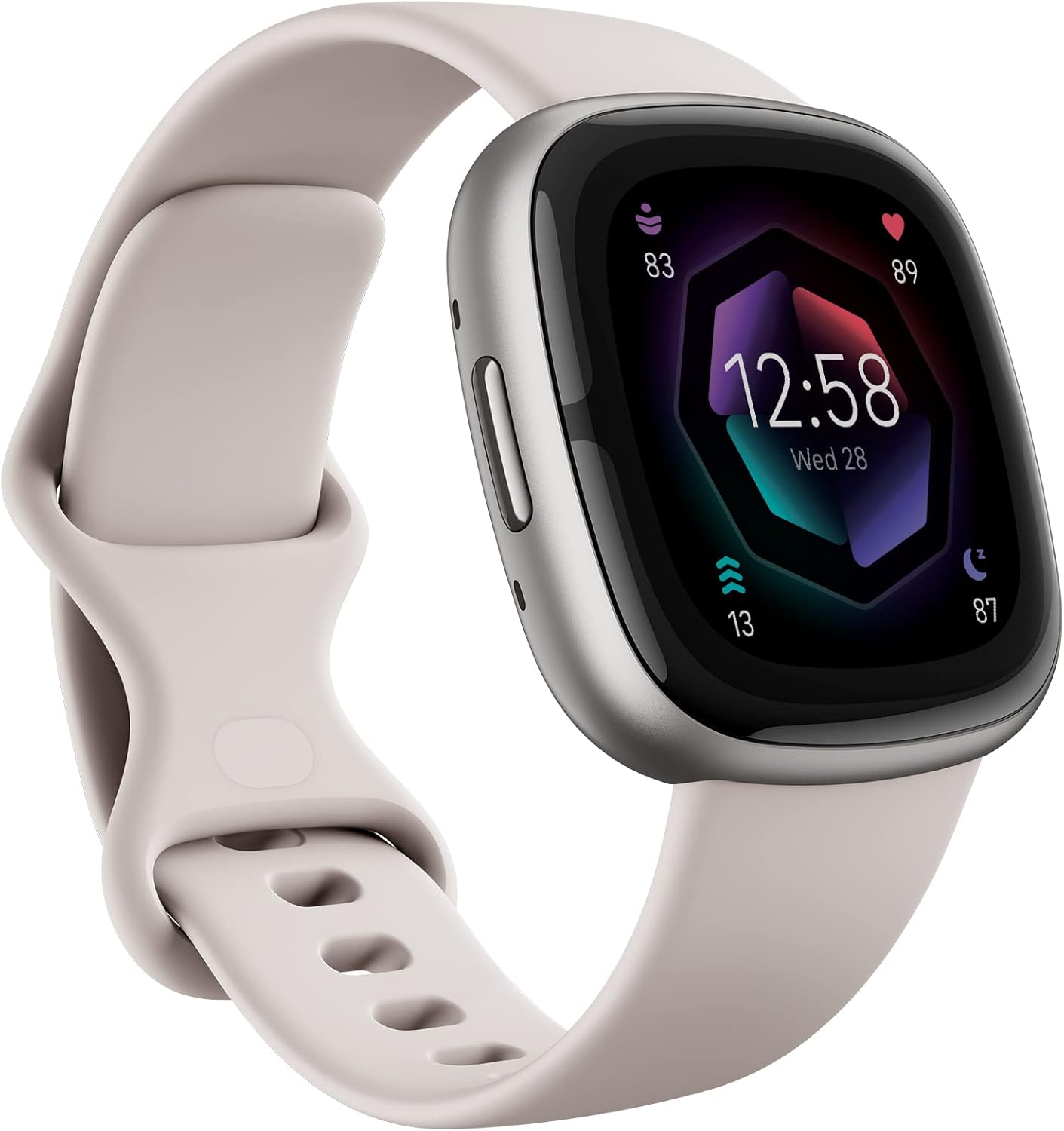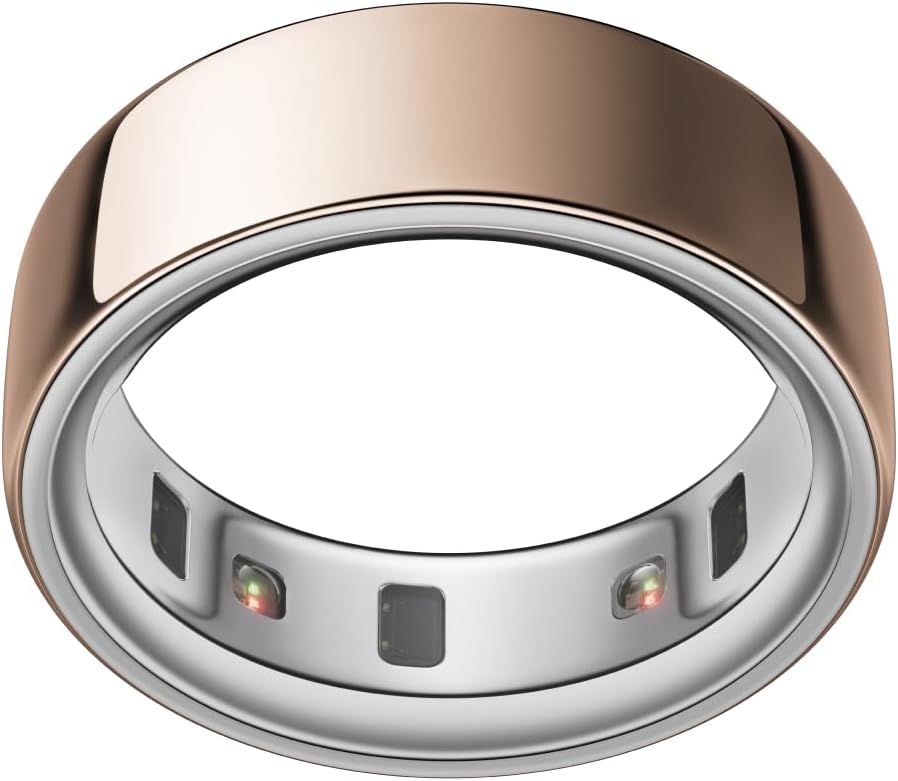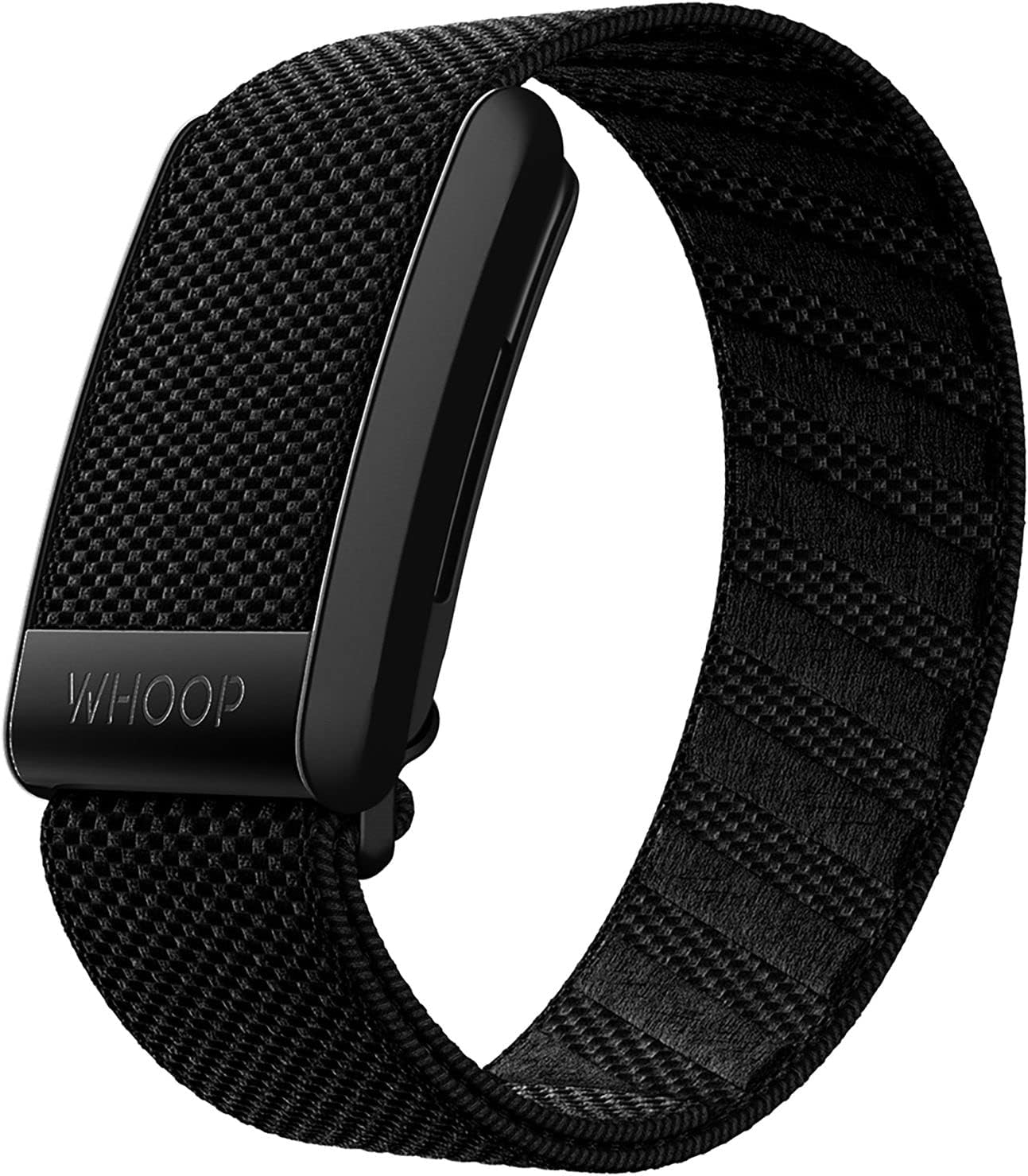In today’s fast-paced world, quality sleep is more important—and harder to achieve—than ever. Stress, irregular schedules, and poor sleeping habits can disrupt our rest, leading to fatigue, weakened immunity, and long-term health risks. Fortunately, smart devices like smartwatches, sleep monitors, and health trackers provide valuable insights into our sleep patterns, helping us optimize rest and reduce stress.
Why Monitor Your Sleep?
Sleep is the foundation for mental sharpness, emotional balance, immune strength, and physical recovery. It involves multiple stages, each essential for physical recovery, cognitive function, and emotional well-being. Poor sleep has been linked to:
- Increased stress and anxiety
- Weakened immune function
- Increased risk of heart disease, obesity, and diabetes
- Weight gain and metabolic disorders
- Memory and concentration problems
- Cognitive decline and burnout
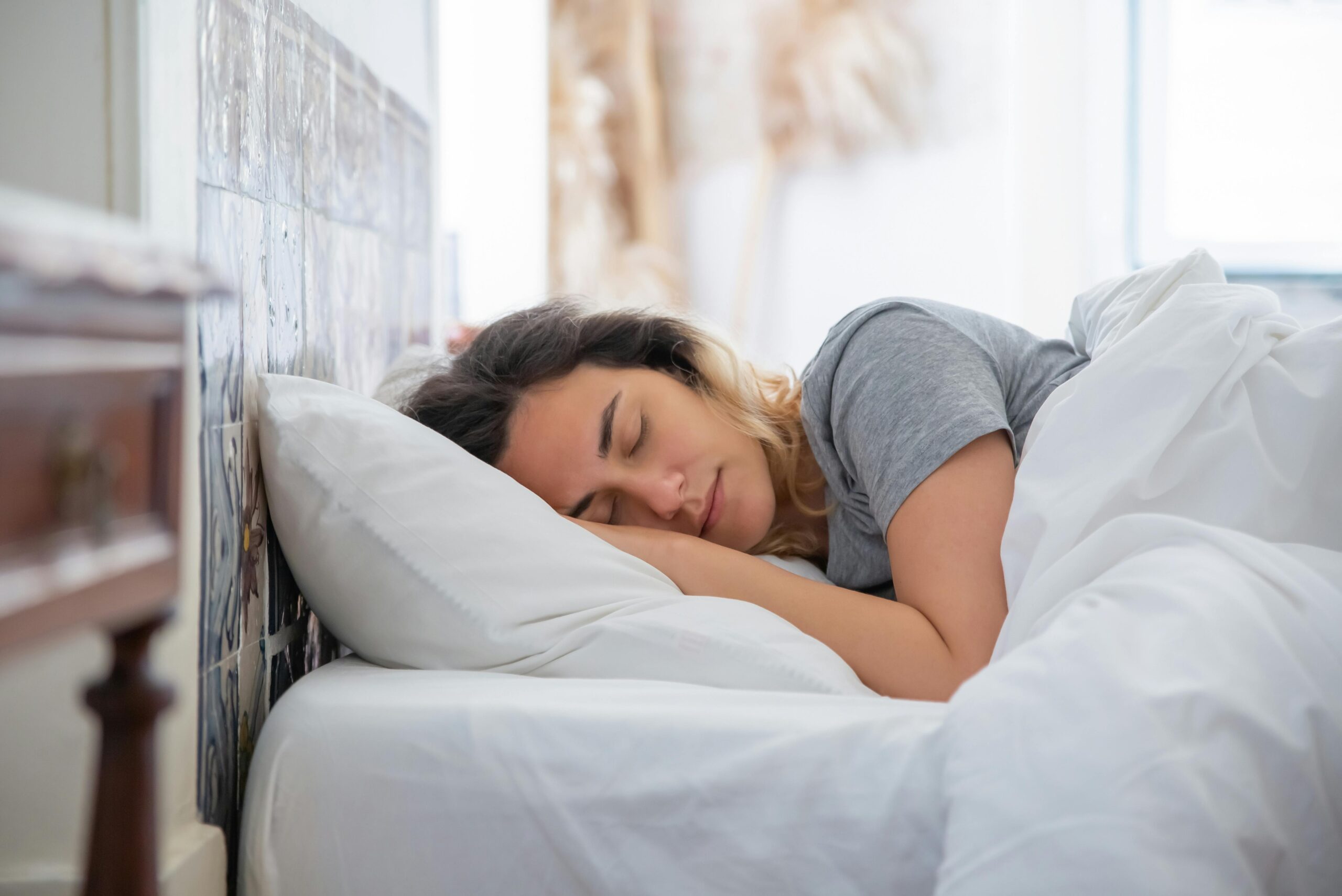
Yet most people don’t really know how well they’re sleeping. That’s where smart technology comes in. With a sleeping monitor built into a smartwatch or health tracker, you can get a full picture of what happens while you sleep—without needing a sleep lab.
How Smart Devices Monitor Sleep
Modern smartwatch devices employ multiple sensors working in concert to provide comprehensive sleep and stress monitoring. The optical heart rate sensor tracks your pulse throughout the night, detecting the subtle changes that indicate different sleep stages. Advanced health tracker models also monitor skin temperature fluctuations, which can indicate stress responses during sleep.
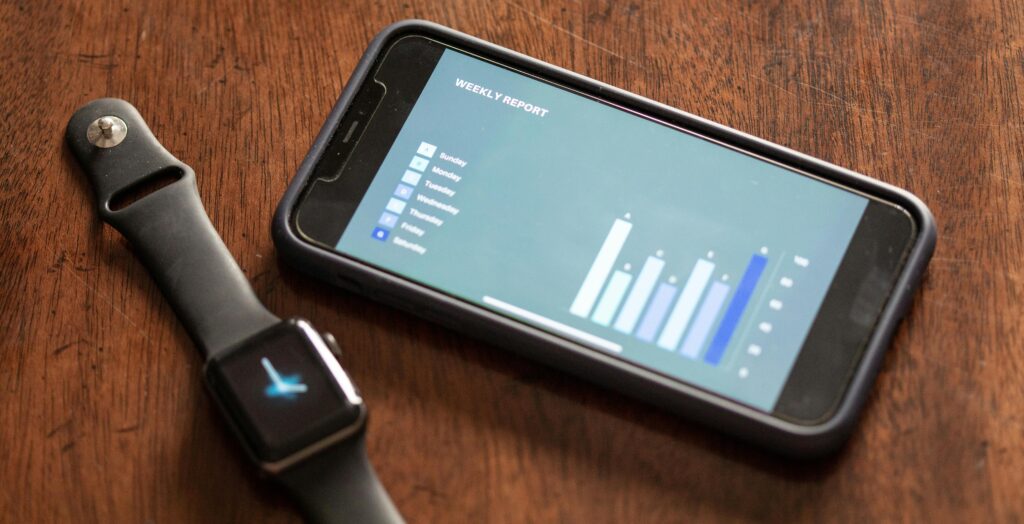
Wearable Technology
Wearable devices, such as smartwatches and fitness trackers, have become increasingly popular for sleep monitoring. Equipped with sensors like accelerometers, gyroscopes, and heart rate monitors, these devices track various metrics such as:
- Sleep Stage Classification: Light, deep, and REM sleep are identified based on movement and heart rate changes.
- Sleep Duration & Efficiency: The total time spent asleep, awake and sleep latency is calculated.
- Heart Rate Variability (HRV) Monitoring: Changes in heart rate provide insights into stress levels and recovery. Some devices (like Garmin and Whoop) provide a "stress score" or "recovery score" based on sleep quality.
- SpO2 (Blood Oxygen Saturation) sensors: Low oxygen during sleep may signal sleep apnea, snoring, or breathing issues. Measure blood oxygen levels, helping detect sleep apnea.
- Stress Tracking: Some devices monitor stress through heart rate variability and electrodermal activity. If you have poor recovery and disrupted sleep, your device may recommend breathing exercises, hydration, or a rest day.
These wearables are typically worn on the wrist, making them unobtrusive and easy to use.
How Smart Devices Improve Sleep and Reduce Stress
1. Active Sleep Optimization
- Optimal bedtime suggestions based on your natural circadian rhythms
- Sleep duration recommendations aligned with your recovery needs
- Environmental adjustments for better sleep quality
- Pre-sleep routine suggestions to improve sleep onset
Smart Wake-Up Technology Advanced alarm systems wake you during lighter sleep phases within a 30-minute window of your target time. This prevents the grogginess associated with waking from deep sleep and can significantly improve morning mood and stress levels.
Sleep Environment Optimization Devices provide insights about:
- Ideal room temperature ranges for your sleep quality
- Impact of light exposure on your sleep patterns
- Noise level recommendations
- Optimal timing for last meals or caffeine consumption
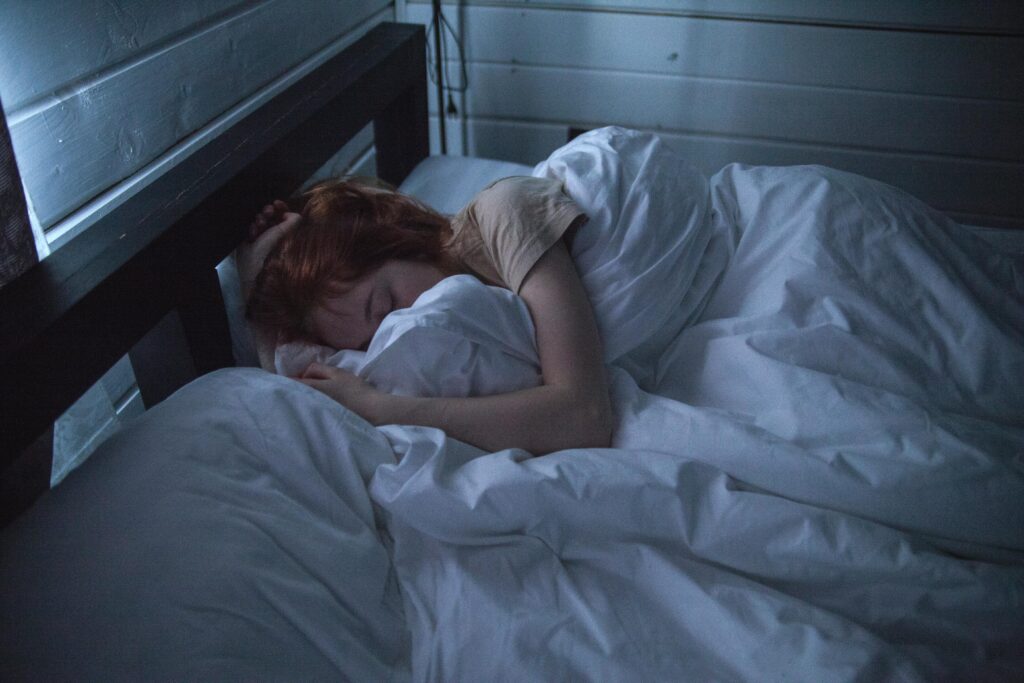
2. Real-Time Stress Management
Immediate Stress Response When devices detect elevated stress through heart rate or HRV changes:
- Gentle vibration alerts prompt awareness without being disruptive
- Guided breathing exercises with haptic feedback
- Quick meditation or mindfulness session suggestions
- Progressive muscle relaxation prompts
Breathing Exercise Integration Many devices offer real-time breathing guidance:
- 4-7-8 breathing patterns for relaxation
- Box breathing techniques for anxiety management
- Coherent breathing to improve heart rate variability
- Visual or haptic cues to maintain proper rhythm without screen dependence
3. Behavioral Intervention and Habit Building
Sleep Reinforcement Devices help establish and maintain healthy sleep habits:
- Consistent bedtime reminders based on your optimal sleep schedule
- Wind-down routine notifications (limiting screen time, dimming lights)
- Caffeine and alcohol intake tracking with sleep impact correlations
- Activity level recommendations to promote better sleep
Stress Pattern Recognition Long-term data analysis helps identify:
- Times of day when stress levels typically peak
- Activities or situations that consistently impact sleep quality
- Weekly or monthly stress and recovery patterns
- Seasonal variations in sleep and stress levels
Recovery Optimization Devices provide guidance on:
- When to prioritize rest based on accumulated sleep debt
- Activity level adjustments during high-stress periods
- Recovery metrics to track improvement over time
- Balancing activity and rest for optimal stress management
4. Long-Term Health Insights
Trend Analysis and Progress Tracking Smart devices excel at showing long-term patterns:
- Weekly and monthly sleep quality trends
- Correlation between lifestyle changes and sleep improvement
- Stress level patterns and their relationship to life events
- Recovery rate improvements over time
Personalized Recommendations As devices collect more data, recommendations become increasingly personalized:
- Optimal sleep duration specific to your recovery needs
- Most effective stress management techniques for your lifestyle
- Best times for physical activity to promote sleep
- Dietary and lifestyle adjustments with measurable impact
Best Devices for Sleep Monitoring
Smartwatches
- Apple Watch Series 9: Seamless iPhone integration, sleep stage tracking, mindfulness tools.
- Garmin Venu 3: Tracks sleep score, HRV, and body battery energy levels.
- Fitbit Sense 2: Monitors SpO2, skin temperature, and provides a "Stress Management Score."
Dedicated Sleep Monitors
- Oura Ring Gen 4: Comfortable to wear overnight, detailed sleep scoring and recovery tracking.
- Whoop 4.0: No screen, just deep analytics on recovery, strain, and sleep.
Conclusion
Sleep is the foundation of your health, and thanks to smartwatches and health trackers, monitoring it has never been easier. Whether you’re managing stress, recovering from workouts, or simply aiming to feel more energized, a good sleeping monitor can help you turn invisible patterns into actionable health insights.
